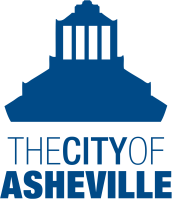Community Reparations Commission
Community Reparations Commission
The Community Reparations Commission is working to make significant and sustainable advances in repairing the damage caused by systemic racism in Asheville and Buncombe County. The Commission seeks to enhance the quality of life for Black residents by dismantling historical barriers and promoting economic mobility and generational wealth.
Background
In July 2020, the Asheville City Council passed a resolution supporting community reparations for Black Asheville, including "a process to develop short-, medium-, and long-term recommendations to specifically address the creation of generational wealth and to boost economic mobility and opportunity in the black community.” The Buncombe County Board of Commissioners passed a similar resolution in August 2020.
These resolutions were not just statements of solidarity, but a committed step towards reversing the legacy of discrimination in our community. It recognized that true healing requires more than words—it demands concrete actions aimed at dismantling the structural barriers that have long hindered the Black community’s access to wealth, health, and justice. As part of this commitment, the City Council voted in 2021 to appropriate $2.1 million for the initial reparations process, with additional funding to be considered as recommendations are provided by the Commission.
Mission
The Community Reparations Commission began meeting in April 2022, comprised of community members representing historically Black neighborhoods and appointed by civic leaders. The Commission aims to enact a continuous financial investment to address and prevent the harms experienced by the generations of Black residents in Asheville and Buncombe County; including the historical harms stemming from enslavement.
The intent of the reparations process as defined by the Commission is to significantly enhance the quality of life for Black residents by systematically dismantling and reforming policies and institutional barriers that have perpetuated harm, while avoiding creating new or additional harms. The process will include strong efforts to eradicate racial wealth disparities through measures that increase access to homeownership, land ownership, business ventures, and equitable financial restitution. These efforts are intended to deliver lasting benefits across generations, with particular focus on the empowerment of Black youth through education that fosters economic advancement.
Moreover, the Commission insists on an official public acknowledgment and apology from municipal and county governments, as well as from organizations and entities that have historically profited from racial injustices.
The accountability for these reparative actions will rest with a continuing Reparations Commission guided and evaluated by those most affected by historical injustices: Black residents and their descendants. This ensures that the measures taken are directly responsive to the needs and experiences of those whom the reparations process is intended to serve.
The Commission's Work
The City Council's 2020 resolution tasked the Reparations Commission with recommending short- and long-term budget and program priorities for the following core issue areas:
- Increasing minority home ownership and access to other affordable housing
- Increasing minority business ownership and career opportunities
- Developing strategies to grow equity and generational wealth
- Closing gaps in health care, education, employment and pay, neighborhood safety, and fairness within criminal justice.
In addition to the full Community Reparations Commission meeting each month, Commission members serve on at least one of the five Impact Focus Area workgroups based on the charges set forth by the City Council’s resolution: Criminal Justice, Economic Development, Education, Health & Wellness, and Housing. These work groups are responsible for:
- Analyzing detailed information on the impact focus area and reporting key findings to the full commission.
- Each work group will be comprised of fewer than 13 voting members.
- Commission members may serve on more than one work groups.
A full timeline of the Community Reparations Commission's work can be found in the sidebar to the right, with detailed information and past updates from the Commission available at the Updates tab on this page. Meeting materials and recordings from past meetings of the Commission and Issue Focus Area work groups can be found on the City of Asheville website.
Happening Now
10/15/2025
At its meeting last night, Asheville City Council voted to formally dissolve the Community Reparations Commission. Established to develop recommendations addressing the lasting impacts of systemic harm, the Commission concluded its work after several years of research, discussion, and community engagement.
In total, the Commission produced 39 recommendations, each developed and approved through Impact Focus Area (IFA) workgroups focused on criminal justice, economic development, education, health and wellness, and housing. These recommendations were presented separately to the Buncombe County Board of Commissioners and the Asheville City Council.
With the Commission’s work now complete, City staff will review the recommendations to determine which can be advanced for implementation as City initiatives. Updates will be shared as this review process progresses.
The City of Asheville extends its appreciation to the members of the Community Reparations Commission for their dedication and to community members for their ongoing engagement throughout this process.
If you have questions, please contact:
Sala Menaya-Merritt, Director of Equity and Inclusion
Office: (828) 232.4517
Email: smenaya-merritt@ashevillenc.gov
Community Reparations Commission August 18, 2025 Meeting (Virtual)
Public Access:
Pursuant to North Carolina General Statute § 166A-19.24(f), this will be a remote meeting that the public can access by any of the following means:
- Watch a livestream on the City’s YouTube Channel: https://youtube.com/live/zmBkLRzXPAg?feature=share
- Call toll-free to listen to the meeting on your phone: Call (855)-925-2801. Enter the Meeting Code: 9040 and follow the prompts to join the live speaker cue.
